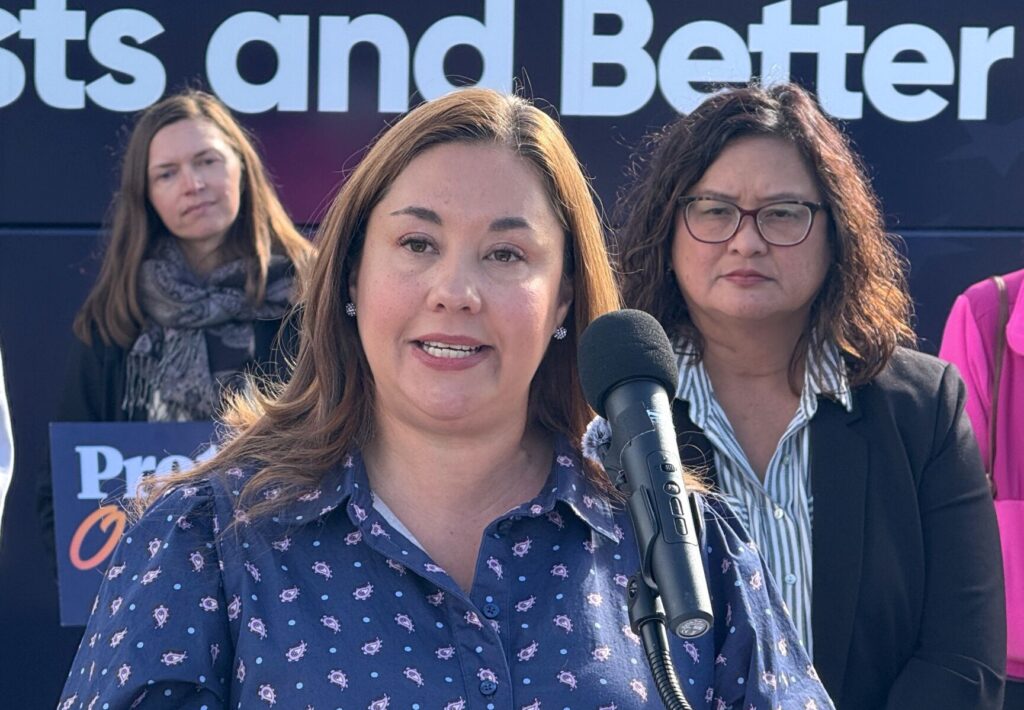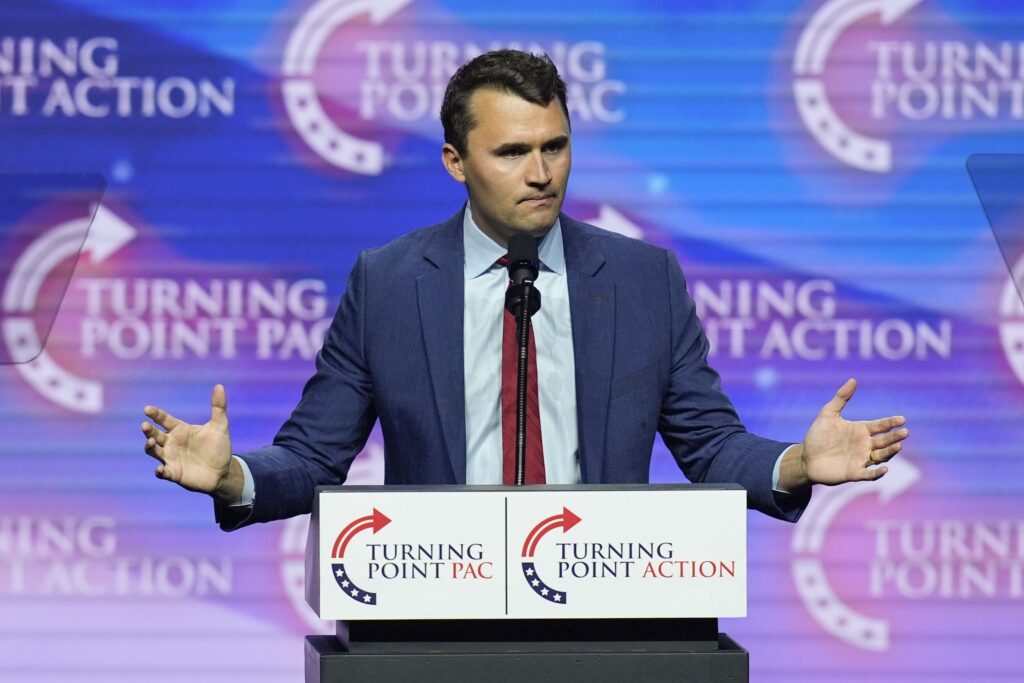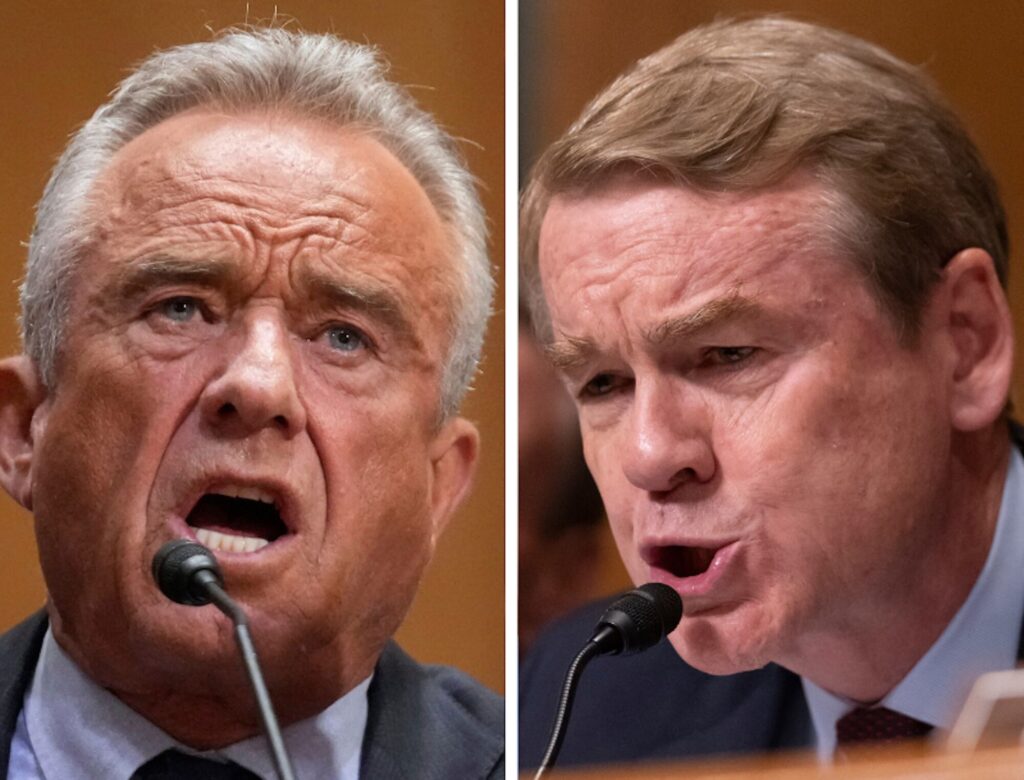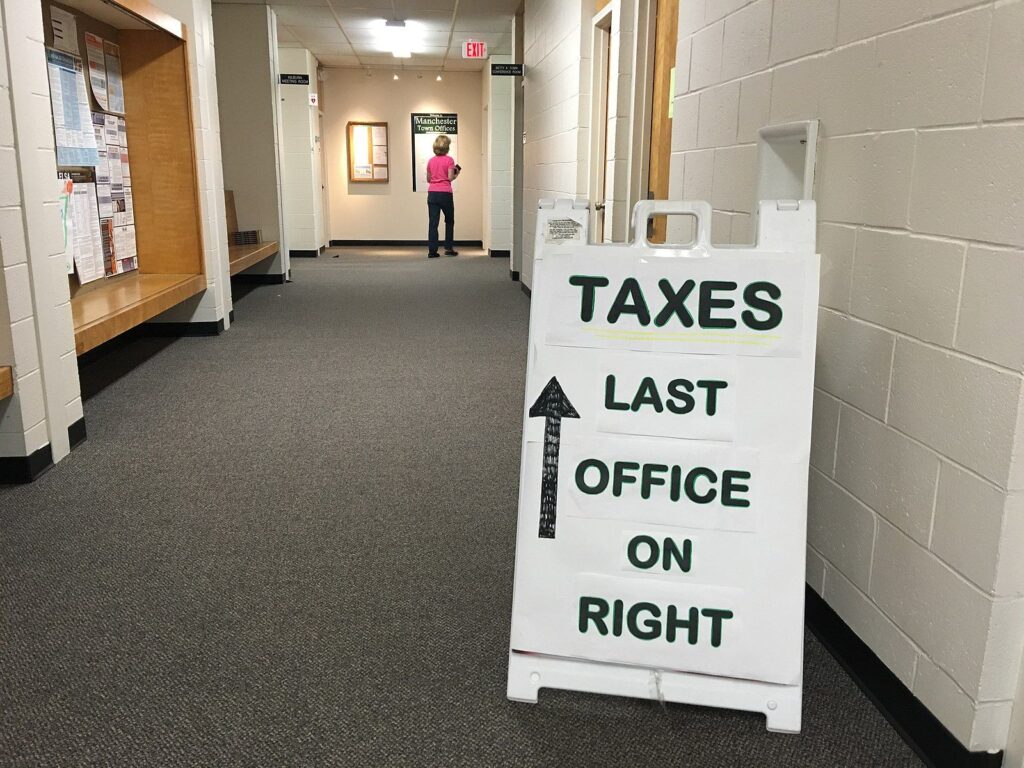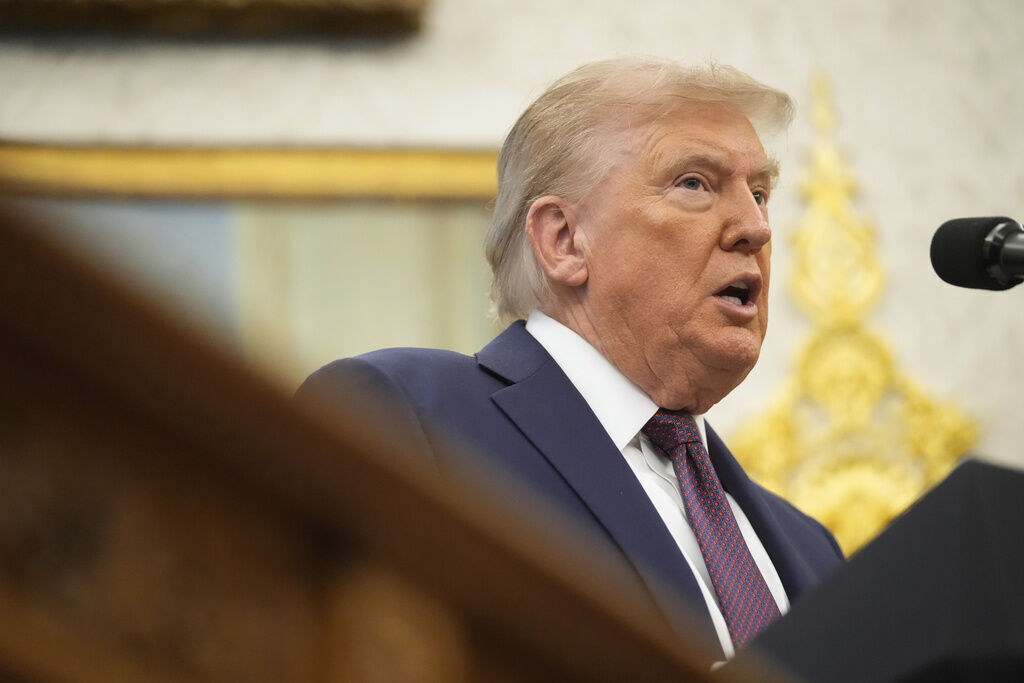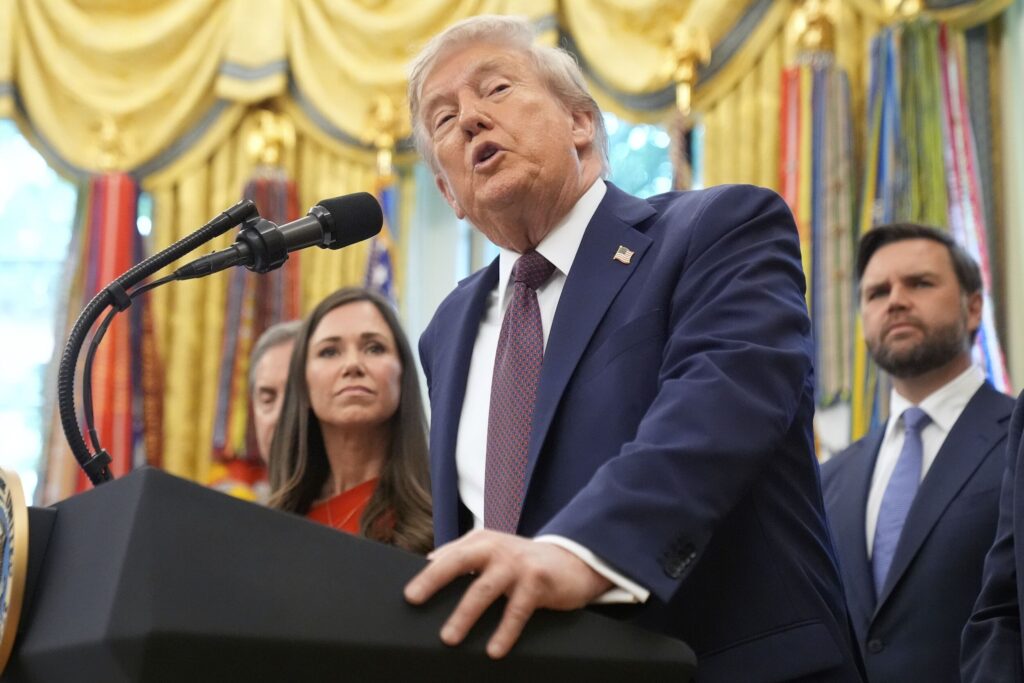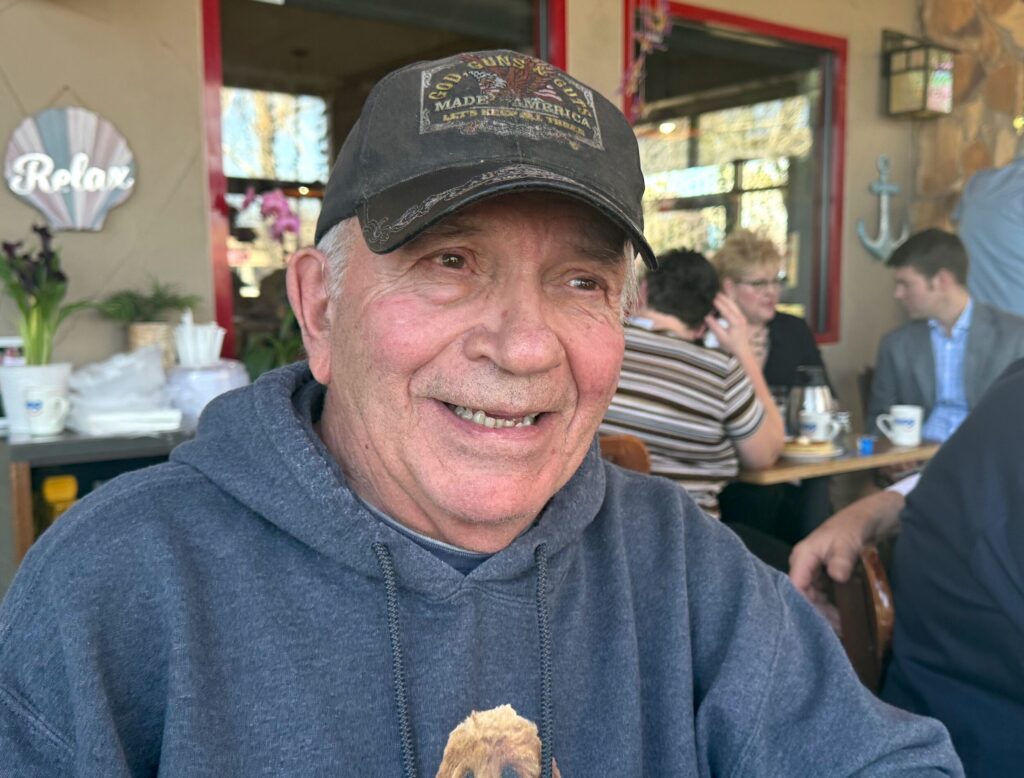‘We are at a crossroads’: Colorado Democrats grapple with retooling party in the Trump era
Colorado Democrats are grappling with the road ahead after an election that saw the party suffer some narrow losses in November while maintaining a grip on power in the state, even as Republicans control all branches of government nationally.
State party leaders and elected officials say the party plans to retool its approach amid a difficult political climate, with the Democratic brand in the tank and traditional constituencies looking for answers during one of the most tumultuous times in living memory.
The response, Colorado Democratic Party Chair Shad Murib told supporters at the party’s recent annual fundraising dinner in Denver, is to face the challenges head on.
The formal gathering in the Seawall Ballroom at the Denver Center for the Performing Arts on May 31 punctuated a full day of seminars, speeches and organizing activity featuring candidates, party officials, community and nonprofit leaders and volunteers at the party’s second annual Dem Fest, which drew more than 1,200 participants to the event — triple the attendance last year.
Buffeted by more than a decade of unbroken success at the ballot box — Republicans haven’t won a major statewide race in Colorado since 2014 — Murib said the party needs to reboot some of its tried and true techniques, developing clear messaging, modern organizing tactics and a fresh take on its infrastructure. Toward those ends, he said the party is overhauling its platform, focusing on issues that matter and recruiting candidates who can connect with voters.
“What a moment we find ourselves in,” Murib said, welcoming more than 600 donors to the Obama Gala.
“Five months ago, Donald Trump returned to the White House, Republicans took back Congress, and, let’s be honest, many of us have woken up since then with the weight of history upon us. We’re living through a season of despair and fear,” he said as the crowd murmured agreement.
After recounting aggressive moves the Trump administration and GOP-controlled Congress have undertaken to shrink or dismantle government agencies and cut funding for programs that used to have broad, bipartisan support, Murib said, “Some might say we’re in crisis. I choose to believe that we are at a crossroads.”
He added, “We sure as hell do not retreat while Americans are begging for us to fight for our country.”
Noting that Colorado was called a “blue island in a red wave” last November — with 30 counties, including some Republican strongholds, moving toward the Democrats compared to the previous election, accounting for 10% of the entire country’s leftward shift — Murib said it didn’t happen by accident.
“It happened because we showed up for and invested in rural communities and fought in red areas,” he said. “We held the state legislature, we kept the CU Board of Regents, the State Board of Education, and we delivered our electoral votes by double digits. And we did not do it with wishful thinking, but with work. By evolving our organizing, we led with an understanding that every voter counts and every county is winnable.”
He acknowledged it wasn’t all a positive outcome for the party in Colorado, as Republicans flipped several seats in the General Assembly and unseated first-term U.S. Rep. Yadira Caraveo in one of the closest congressional races in the country.
“We have to be clear that we saw the cracks as well — narrow wins, a few close losses that hurt real bad, and a congressional seat you can be damn sure we’re going to win back in 2026,” he said, tipping his hat to the dinner’s keynote speaker, Massachusette’s Sen. Elizabeth Warren. “But we do not make excuses. We plan, and as Sen. Warren says, ‘We have a plan.'”
Murib, who was elected to a second, two-year term in April, said the party is “clarifying what we stand for in the Colorado Democratic Party, not just what we’re against.”
Toward that end, he said, “We are overhauling our state party platform and trimming it down to what matters to real people — fewer bullet points, more punch. Something we can say to our neighbors, not just in party meetings. Something that elected officials can proudly stand for, and that inspires that Coloradan who is curious to not just think about but actually run for office. We are not shying away from the word ‘Democrat’ anymore. We are embracing it and making it mean something.”
Earlier, after moderating a discussion about the future of the party with U.S. Rep. Jason Crow during Dem Fest, Murib told Colorado Politics that the two reforms — condensing the platform and recruiting candidates — go hand in hand.
“This is just a great opportunity for all different parts of our party to come together, to unify and figure out exactly how we’re going to dial into not only winning elections but creating policy that measurably impacts people’s lives and creates a meaningful difference,” he said.
“We want to make sure that we’re recruiting candidates who are community leaders first, who then happen to be Democrats,” he said. “People’s identity is not politics, and it is not partisanship. It is about who is the incredible youth softball coach that’s the hero of all the kids in the community, who’s the incredible teacher, who is the firefighter that knows everybody and makes sure that they’re there at the boot sale. These are the types of people that can represent our values the best. We’re looking for folks who are community leaders, who happen to be Democrats.”
Murib described a goal to “dramatically redesign our platform,” taking it from a document of more than 50 pages to something he said might “fit on a business card.”
“Really honing in on those values of the Democratic Party — of supporting working people, freedom to make the decisions you want over your own body, to be able to live a great life, whether you go to college or not. These are the core fundamentals the Democratic Party we need to remind people of and really embrace if we want to win elections again.”
Serving his fourth term, Crow was tapped earlier this year to lead recruitment efforts for the Democratic Congressional Campaign Committee. On stage with Murib, he described what he’s looking for in potential candidates.
“I hope nobody minds me cussing, but people can smell bull**** from a mile away,” Murib said, drawing nods and chuckles. “And unfortunately, I think everyone in this room is here because we believe fundamentally in the Democratic Party and the values we all share. But I think everyone here kind of acknowledges that we’ve had trouble getting that across to people and telling people exactly what we’re going to do for them.”
Crow said empathy and authenticity are key.
“Don’t try to be something else, right?” Crow said, adding that he sees it in elected officials from both parties who wear cowboy boots or don a Carhart jacket to play a role.
“And I’m like, just don’t,” Crow said. “If you have never hunted, or you’ve never worked construction, or you’ve never worked manual labor, don’t roll around pretending that you do, because people will know that, and they’ll be rightfully resentful of it, right?”
Crow said one thing Democrats need to do is shed their allegiance to detailed policy papers and zero in on how government affects people.
“I also really firmly believe we always think that we’re starting off with a policy discussion because many of us are policy wonks — I’m a policy wonk, I love talking policy whenever I get the chance to do it,” he said with a grin. “And we love our 21-point white papers and our memos and and all these great essays that we always read. But that’s not how you how we’re engaging with folks.”
Instead, he said, people are “concerned about culture and identity and belonging, and until people trust you and feel like you respect them and see you, they don’t care what you have to say. They’re not interested in your policies and all of our ideas, which are great, until they actually think that we see them and we respect their way of life.”
A starting point, Crow added, is acknowledging “the fact that for most of America, the American Dream is dead,” since people can’t count on the kind of constants that previous generations took for granted.
“We have to acknowledge that that for well over half of America, the things that I always thought of as the American Dream — which is the ability to afford a home, to retire with dignity, to have good educate public education, and for your children and your grandchildren’s lives to be better off than yours. And the reality is we are now the first generation where that is no longer true, all of those things, so let’s acknowledge that, and let’s then embark on an effort to do something about it.”
After leading a session on the Democratic National Committee’s rapid response infrastructure and efforts to engage voters through social media influencers, DNC Vice Chair Artie Blanco, a longtime Nevada DNC member and former national political director for the AFL-CIO, told Colorado Politics that the Colorado party’s approach could yield dividends.
“It is about understanding what working Coloradans are in need of, what they are hurting from, what are the things that are not working for them to make a living for their family, and to be able to move forward,” she said. “In Colorado, we just need to make sure that we’re getting all the voices.”
Compared to Democratic parties in other states, Blanco said, Colorado’s party “has a real good brand” that can inspire fellow partisans around the country. She added that she was a big fan of Dem Fest and wants to see it replicated elsewhere.
“I think at the end of the day, we need to not be afraid to have communications with everybody and talk to everyone,” Blanco said. “And with my background, we get to talk to working people, and we’ve got to just get back to basics and be honest and authentic about who we are and what values actually drive us as a party. And the policy part is the boring part — people don’t want to know about how the sausage is made. They just want to enjoy the sausage and know that the sausage is available. And so that’s how we need to communicate.”
Colorado Politics Must-Reads:


